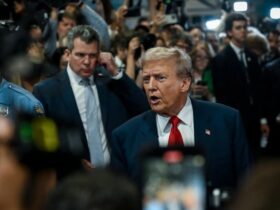Recent reports have suggested that crypto wallets could soon be as simple and accessible as emails.
According to Vitalik Buterin, the co-founder of Ethereum, a visionary plan to revolutionize the way users interact with crypto wallets with plans to make it as simple as email is in progress. Buterin’s ambitious goal is to make crypto wallets as simple and user-friendly as email, ensuring widespread adoption and accessibility for individuals around the globe.
This move has the potential to bridge the gap between mainstream users and the decentralized world of blockchain technology. According to Vitalik Buterin, “a pretty big deal” is the potential of account abstraction, enabling the storage of seed phrases in smart contracts. Successful implementation of this idea of plans to make crypto wallets as simple as email would render managing a crypto wallet as effortless as managing an email account.
This could potentially allow users to recover their seed phrase, which serves as the private key for signing transactions, with the same level of ease as resetting the password for an email account.
According to the World Economic Forum’s Global Future Council on Cryptocurrencies, there has been no internationally coordinated regulation of cryptocurrencies — though international bodies have been working on assessing risks and appropriate policy responses to the rise of cryptos.
The total market cap of digital currencies is $1.7 trillion and over $90 billion worth is traded every day. Piecemeal approaches to cryptocurrency regulation must be replaced by a globally coordinated framework.
The Financial Action Task Force (FATF) has been working on developing international standards for cryptocurrency regulation. The FATF has issued guidance on how countries should regulate cryptocurrencies and has recommended that countries implement a risk-based approach to regulating cryptocurrencies.
In the United States, President Biden signed off on the long-awaited Executive Order on Ensuring Responsible Development of Digital Assets, a high-profile acknowledgement of the potential of the cryptocurrency industry¹. That Executive Order commits the White House to taking part in research on cryptocurrencies and to engaging departments across the government to collaborate in the creation of a regulatory framework for digital assets¹. It also outlines a “whole-of-government approach to addressing the risks and harnessing the potential benefits of digital assets and their underlying technology.
In Europe, the European Union (EU) has proposed new regulations that would require cryptocurrency exchanges and wallet providers to collect more information about their customers⁴. The EU has also proposed new rules that would require cryptocurrency transactions to be reported to authorities.
In Asia, Japan was one of the first countries to regulate cryptocurrencies. In 2017, Japan passed a law that recognized bitcoin as a legal payment method³. South Korea has also been active in regulating cryptocurrencies. In 2021, South Korea passed a law that requires cryptocurrency exchanges to register with the Financial Services Commission (FSC).
Whilst the global adoption rate of cryptocurrencies may have been stalled by recent regulatory activity which has brought to justice bad practices, the market has been showing signs of recovery as peer-to-peer platforms continue to drive cryptocurrency usage in emerging markets.
Over 10% of global Internet users likely own some form of cryptocurrency – 500m people if we assume 5 billion internet users. Crypto.com estimates closer to 300m crypto owners worldwide, a 275% increase from their January figure.
As of today, the global cryptocurrency market cap is $1.25 Trillion.
Cryptocurrency has become a bull and whichever nations ends up taming it through effective regulation will become the crypto rodeo of choice for consumers and stakeholders in gaining the benefits of the digital asset and blockchain technology.









Got a Question?
Find us on Socials or Contact us and we’ll get back to you as soon as possible.